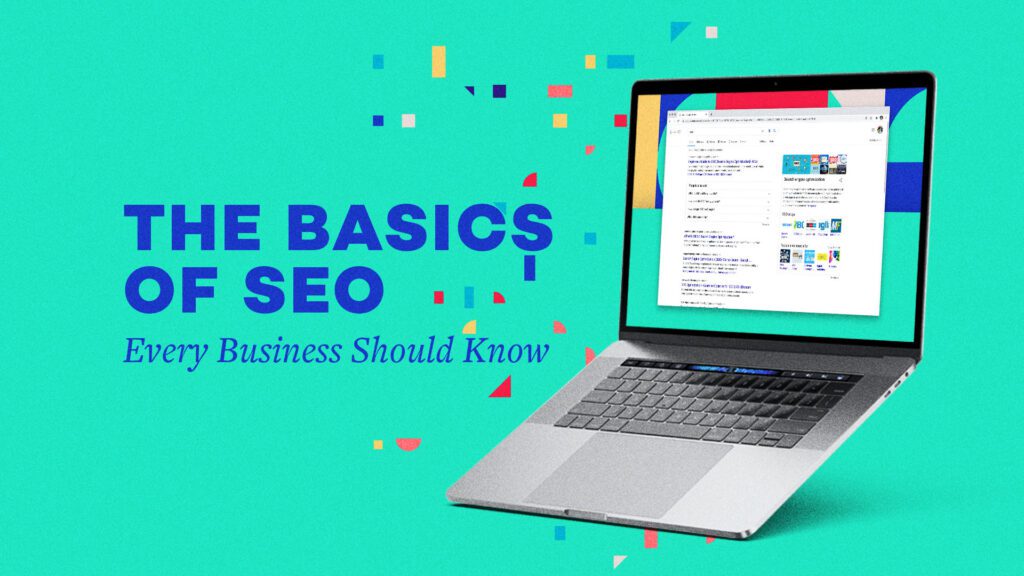SEO is a term that gets thrown around a lot… and frankly, many business professionals don’t fully understand the meaning and relevance that SEO has for their business.
In fact, we see it often – lots of business owners and company employees dump a lot of money into SEO and don’t really see the results they want.
Rest assured, this doesn’t have to be your experience…
Your SEO Success Starts With Understanding What SEO Is
Before your business can grow and thrive on the back of SEO, it’s really important that you understand what it is and how it benefits your business — sales specifically.
Everything starts with understanding what SEO is.
SEO stands for Search Engine Optimization.
To break this down, the goal of search engine optimization — SEO — is for your business to be easily found when people search industry related topics, services, or products. And the only way you’re going to accomplish that is by making sure you speak the same language as search engines (Google, Bing, Duck Duck Go, etc.).
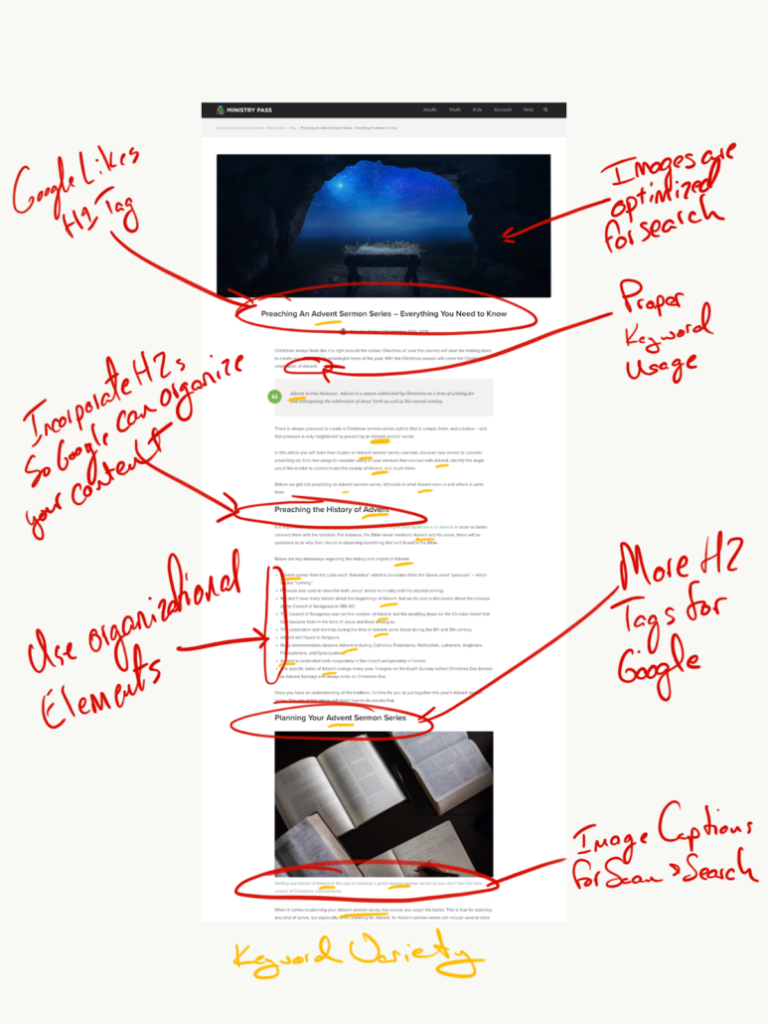

Do you know where to place your keywords for the greatest impact in SEO for your website?
Speaking the same language as the search engines allows Google and other engines to work with you — not against you.
This is a BIG DEAL for your business.
If you want to be found online (which we’re guessing you do), you want to make sure you speak the search engine language.
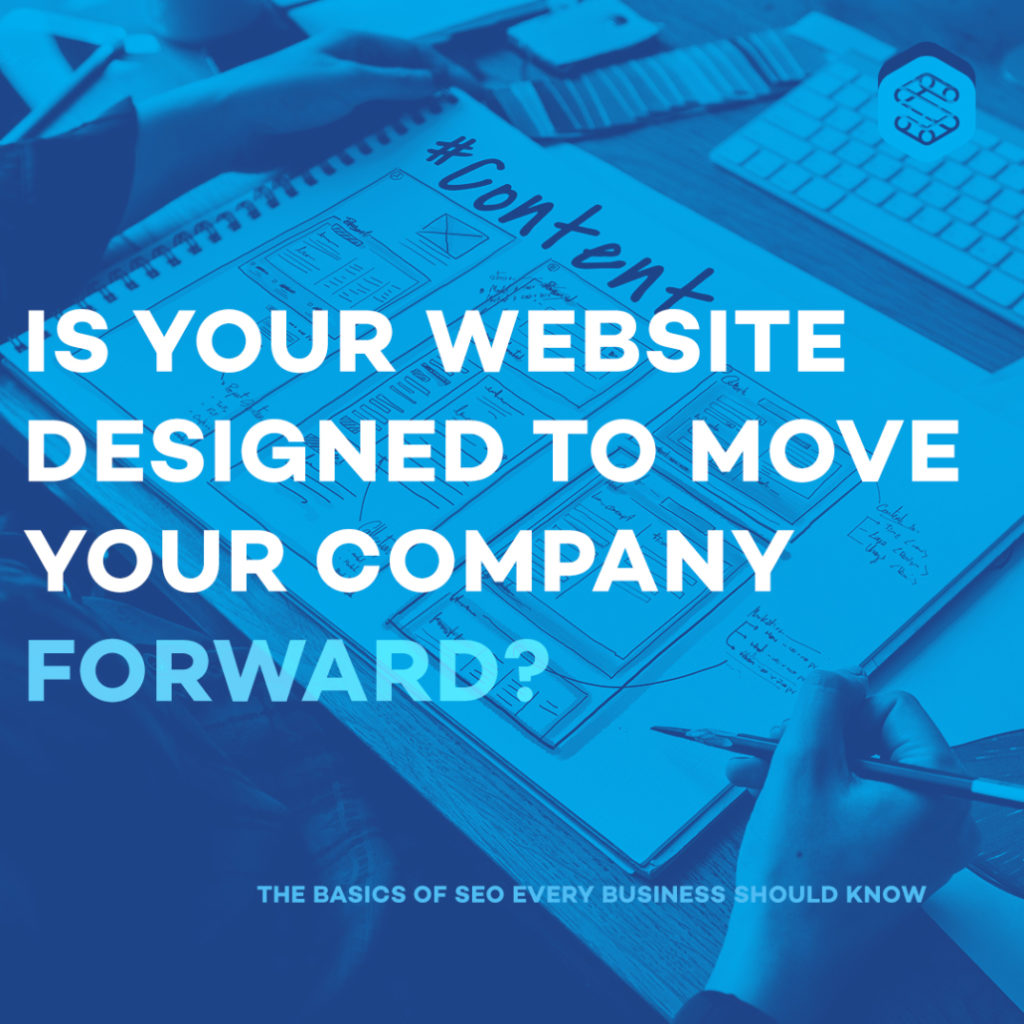

Creating a plan to use search engines to drive traffic opens up an entirely new type of lead — one that isn’t based upon people remembering to refer work to you, but rather, you actively marketing your business to new audiences who have, most likely, never heard of you.
Making SEO Count for Your Business (Don’t Waste Time)
There are a lot of details you can get caught up in when it comes to SEO… believe us, we know.
As a business owner, not only do you not have the time to play in the weeds, and good news for you, there’s really only a couple of areas to be aware of to ensure you’re tapping into the power of SEO for your business.
The first area to be aware of is actually asking a question: “how is your website driving generating new leads that turn into sales?” Is your website designed to move your company forward?
Let’s start with how your website is driving business for you… in other words, is your website set up in a way that’s actually pushing you and your company forward?
Most business websites generate referral leads. A current or past client had a great experience, tells a friend or colleague about your company, and that friend or colleague visits your website and fills out the contact form. Not much different than word of mouth and business cards.
Creating a plan to use search engines to drive traffic opens up an entirely new type of lead — one that isn’t based upon people remembering to refer work to you, but rather, you actively marketing your business to new audiences who have, most likely, never heard of you.
More leads outside of your current network can lead to more business and ultimately grow your company to a preferred future.
Your SEO plan starts with identifying the subjects, topics, and questions that capture the heart of what your business does — and putting content on your website directly related to what you identify.
But before you get to work creating content there is a bit of information you need to know to make sure you’re creating the right content.
Let’s break down the two different types of SEO.
The Two Types of SEO You Need to Know About
Not all SEO is the same. While there are more ‘micro’ categories of SEO that we won’t get into in this piece, there are only two main types of SEO that most businesses need to focus on.
Local SEO and non-local SEO.
Which one is most important to you? Keep reading to find out.
Local SEO
Local SEO is vital for brick and mortar companies – those with store fronts. If that’s you, then you need to have a local SEO strategy.
Local SEO starts with something called citations. Citations are essentially mentions of your business across various platforms, indexes, and directories.
Citations are the backbone of a solid SEO strategy. Get your citations right and you will see results.
So how do you get a citation right? It’s easy… when you create a listing anywhere (Facebook, Yelp, Google, any directory) it must include:
- Business Name
- Business Website
- Business Address
- Business Phone Number
The important part of these citations is they are IDENTICAL across all platforms.
If you abbreviate Road to Rd in your address on one, do it for all.
If you say Suite #101 in one listing, use the same format for all listings.
You may already be listed on the big sites — Google, Yelp, Bing, Facebook, etc — so audit those listings and make sure the citations are identical from platform to platform.
This one detail will improve your authority with search engines. The consistency confirms that your business as listed on website A is the same business appearing on website B and will improve your overall SEO ranking.
Non Local SEO
While local SEO is largely everything that takes place off of your website (directories and listings) non-local SEO is a combination of on-site, off-site work you do to rank higher in searches that are unrelated to geography.
For businesses that do not have a physical storefront and, for the most part, can conduct business across city and state lines, non-local SEO is where you will spend nearly all of your time.
If you have a business that falls into this category, your journey to SEO success starts with identifying keywords that relate to your business.
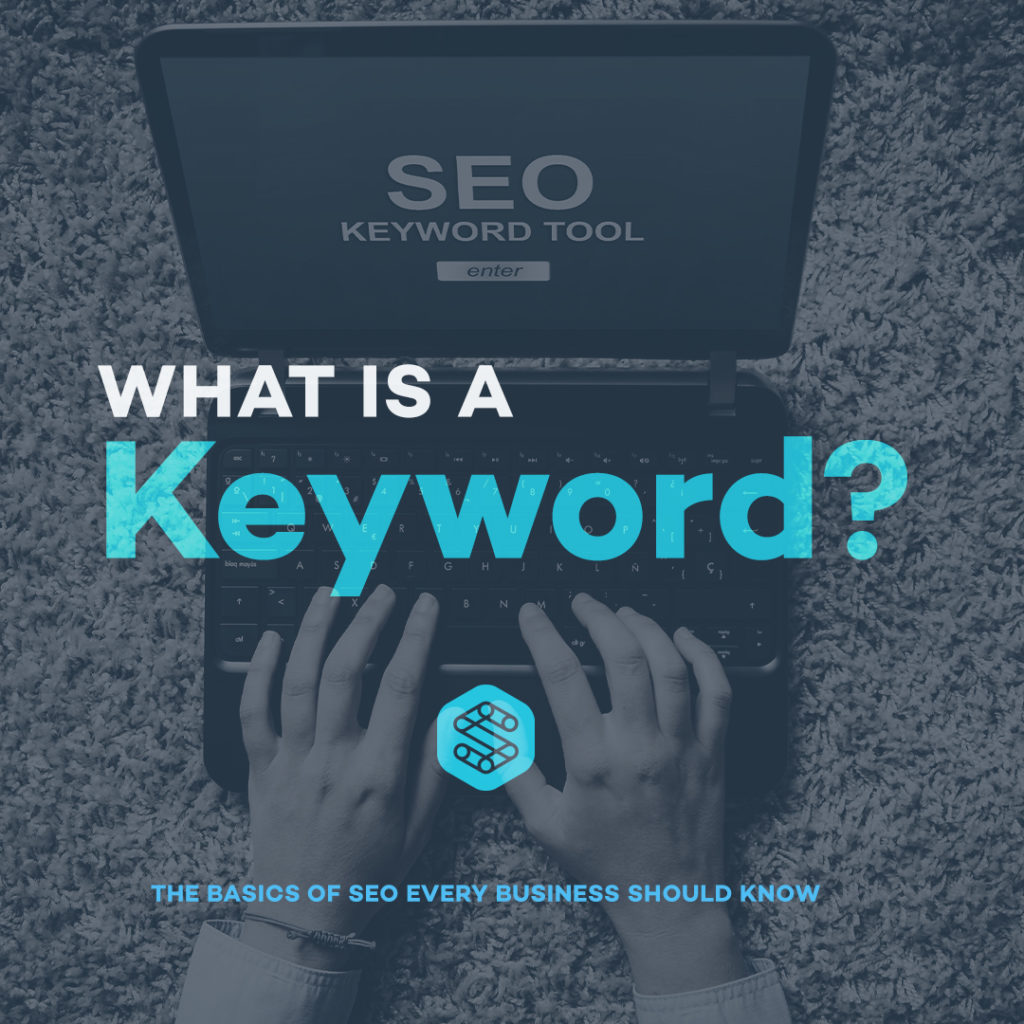

A keyword is simply a phrase or question potential clients use when searching for solutions that your business provides
What Is A Keyword?
As it relates to SEO, a keyword is a word or combination of words to create a phrase that people use when conducting a search using a search engine like Google or Bing. In addition to a main keyword, you will also have synonym keywords. These are keywords or phrases that are similar in nature to your main keyword or directly related to the larger topic of your main keyword.
What phrases or questions are potential clients using when searching for solutions that your business provides?
So let’s look at a tangible example to give you an idea of what we mean.
Let’s say you have an online ecommerce shop that sells replacement auto parts. You might find that specific keywords someone could be using related to your industry would be something like:
“Toyota touch screen digitizer”
When someone searches “Toyota touch screen digitizers” you want your website to come up at the top of the search — ideally, this would translate into sales for your business.
So how do you rank at the top of this search and other searches similar to it?
In short, the content on your site needs to provide authoritative information on the topic keyword of “Toyota touch screen digitizer” and answer any questions a user may have related to that particular unit.
Why Choosing the Right Keywords Matter
Identifying the right keyword and synonym keywords for a specific topic is important to you because you want to create content for the terms actually being searched for. We’re not talking about stuffing blog posts with the same keyword over and over… that won’t get you very far. We are talking about providing quality content on a very specific topic.
If you want specific results, get specific in your content.
For our Toyota touch screen digitizer keyword, we will want to create a single page or post on our website that incorporates the keyword in in the following ways:
- What you need to know about a Toyota touch screen digitizer.
- What is a touch screen digitizer?
- Replacing your Toyota touch screen digitizer.
- Where to buy a replacement touch screen digitizer for Toyotas
- Do you have a broken Toyota touch screen? Chances are it is the touch screen digitizer that needs to be replaced.
- How to repair a Toyota touch screen digitizer.
This communicates to search engines that the content on your page is a good match for people inputting the search query “Toyota touch screen digitizer” and they will most likely find what they are looking for on your website.
The number one goal of any search engine is to find the best, most relevant results for every user — this keeps users coming back to that search engine over and over again because they routinely are able to find what they are looking for.
When Google determines that your content is providing answers, they increase your ranking, elevate your search result, and factor it all into how they treat your website as a whole across more searches.
The higher you rank in search, the more website visitors. The more website visitors, the greater potential there is to create a match with a new client… this drives your sales!
What keywords do you need to rank for?
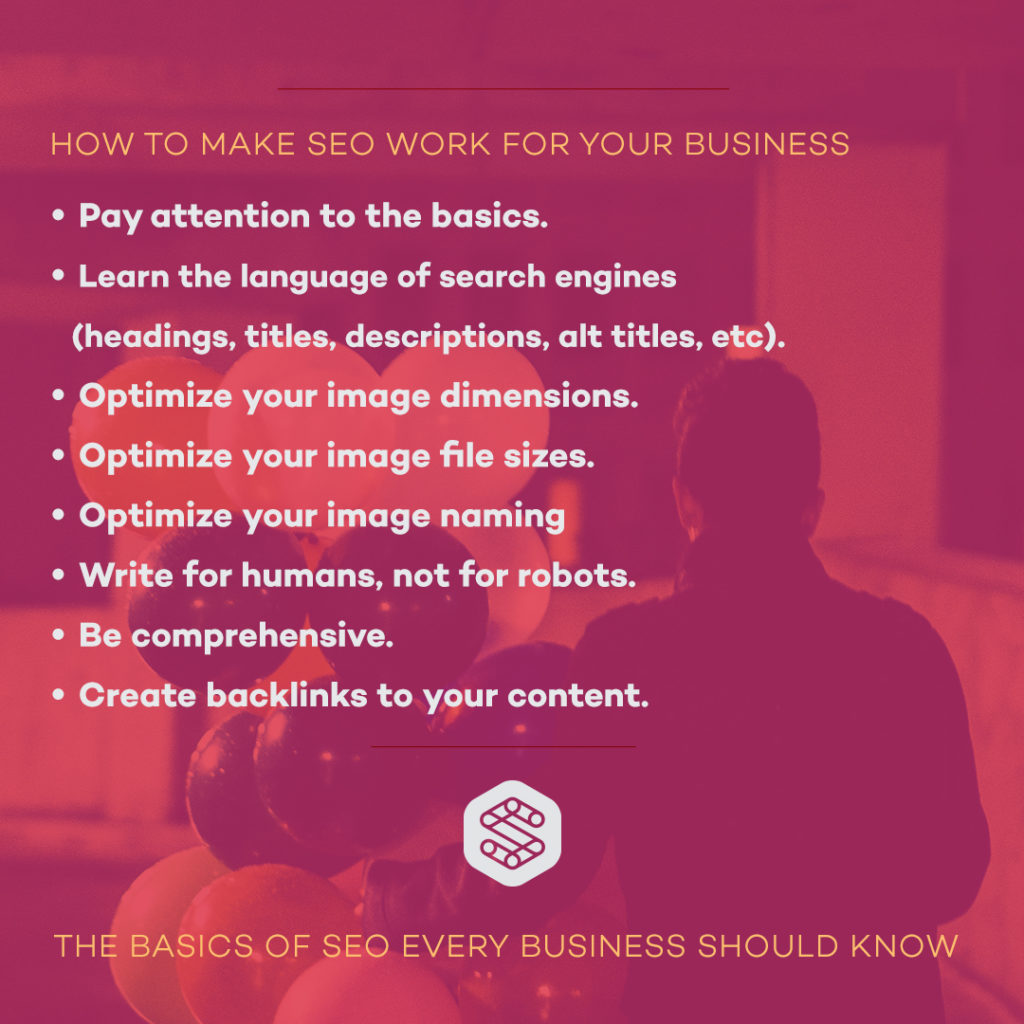

Start by identifying what keywords matter most to your business and then move on to creating an outline of “if I were to talk about everything I know related to this keyword, what would that talk include?”
Anyone Can Make SEO Work For Them
Whether you are the business owner, a marketing employee, or an entrepreneurial minded individual just wanting to learn more about making SEO work for you there is good news… anyone can get search engine results!
Pay attention to the basics.
Learn the language of search engines (headings, titles, descriptions, alt titles, etc)
Optimize your image dimensions
Optimize your image file sizes
Optimize your image naming
Write for humans, not for robots
Be comprehensive
Create backlinks to your content
Just looking at that list can feel overwhelming — it is a lot to consider. Don’t let it get you down. Start by identifying what keywords matter most to your business and then move on to creating an outline of “if I were to talk about everything I know related to this keyword, what would that talk include?”
With that piece in place and a passion for what you do you are in good shape to produce content that search engines will eat up. If in doubt, bring in an expert to help. That could be in an advisory role, an administrative or writing role, or an agency that can run from start to finish with the project.
As long as you understand the basics of SEO (everything we’ve covered is truly the basics) and practice these simple tactics, making SEO work for you and your business will help you get there.
